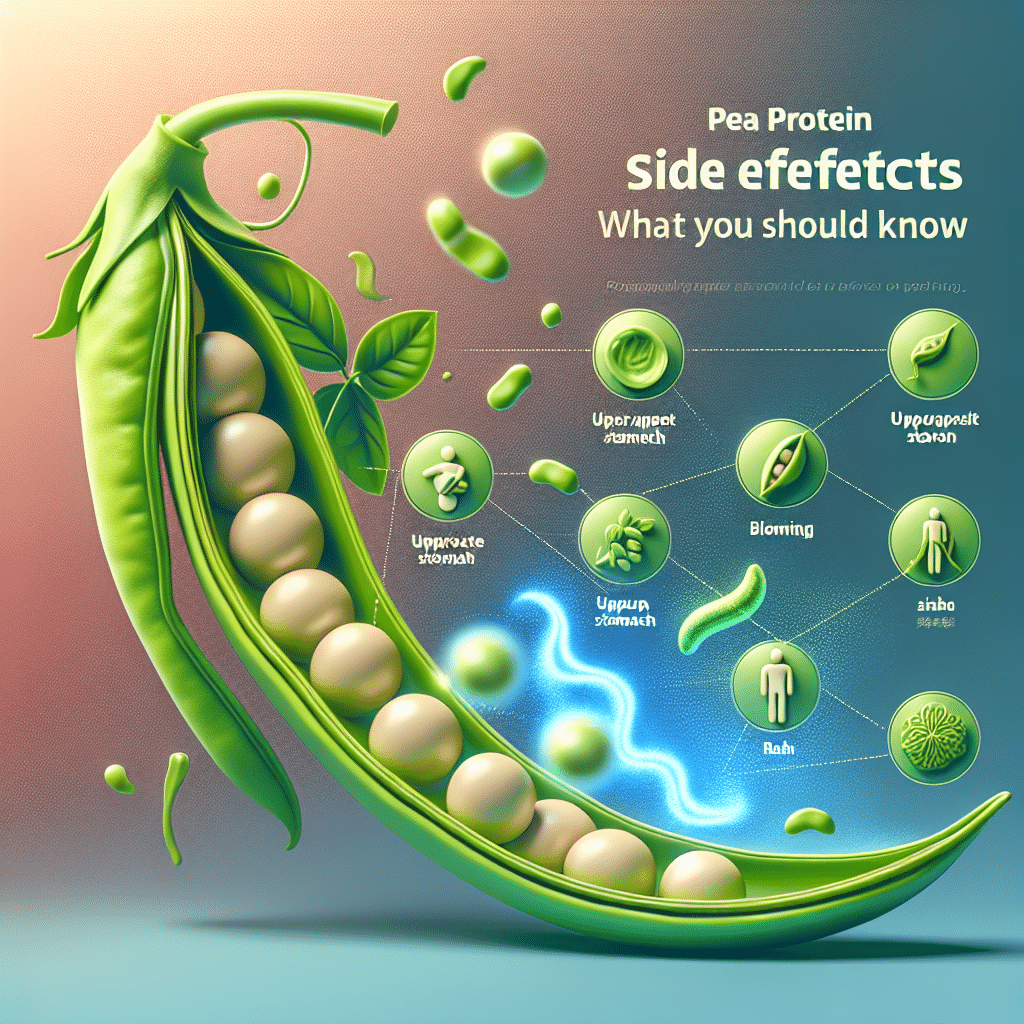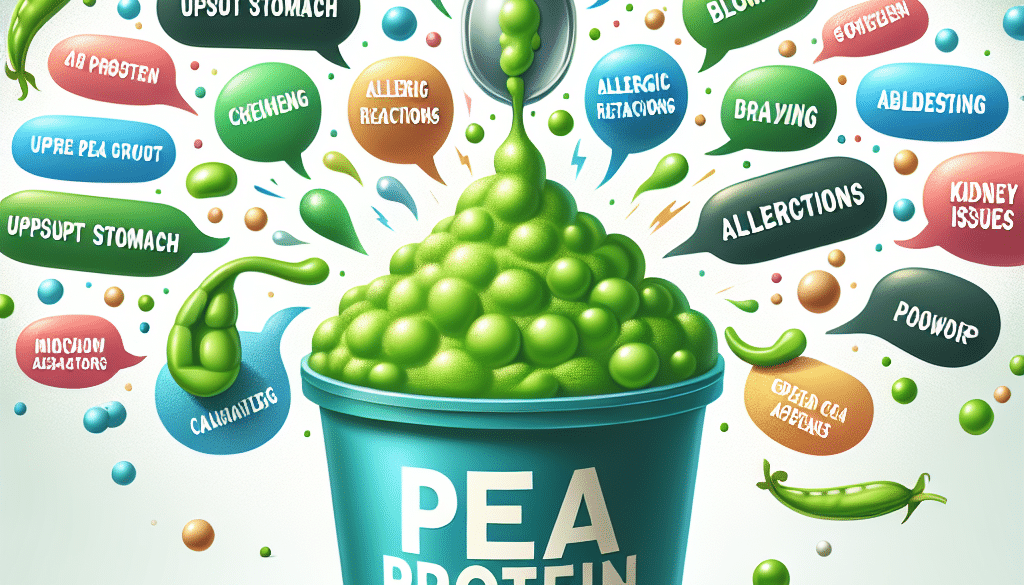Pea Protein Side Effects: What You Should Know
-
Table of Contents
Pea Protein Side Effects: What You Should Know

Pea protein has gained significant popularity in recent years as a plant-based alternative to animal-based protein sources. It is derived from yellow peas and is known for its high protein content, low allergenicity, and sustainability. However, like any dietary supplement, pea protein may have potential side effects that consumers should be aware of. In this article, we will explore the possible side effects of pea protein and provide valuable insights to help you make an informed decision about its consumption.
1. Digestive Issues
One of the most commonly reported side effects of pea protein is digestive issues. Some individuals may experience bloating, gas, or stomach discomfort after consuming pea protein powder. This can be attributed to the high fiber content present in peas, which can be difficult for some people to digest. If you have a sensitive digestive system or a history of digestive issues, it is advisable to start with a small dose of pea protein and gradually increase it to assess your tolerance.
2. Allergic Reactions
While pea protein is generally considered hypoallergenic, there have been rare cases of allergic reactions reported. Pea protein is free from common allergens such as gluten, dairy, and soy, making it a suitable option for individuals with food sensitivities. However, individuals with a known allergy to legumes, including peas, should exercise caution when consuming pea protein. It is recommended to consult with a healthcare professional or allergist before incorporating pea protein into your diet if you have a history of legume allergies.
3. Heavy Metal Contamination
Another potential concern with pea protein is heavy metal contamination. Peas, like other plants, can absorb heavy metals from the soil in which they are grown. While reputable manufacturers conduct rigorous testing to ensure the safety and quality of their products, it is essential to choose pea protein from trusted sources. Look for brands that provide third-party lab testing results to verify the absence of heavy metals and other contaminants.
4. Interference with Medications
Pea protein contains certain compounds that may interfere with the absorption or effectiveness of certain medications. For example, pea protein is rich in phytic acid, which can bind to minerals like iron, zinc, and calcium, reducing their bioavailability. If you are taking medications that require optimal mineral absorption, it is advisable to consult with your healthcare provider before consuming pea protein or any other dietary supplement.
5. Hormonal Effects
There have been concerns raised about the potential hormonal effects of pea protein, particularly in men. Pea protein contains compounds called phytoestrogens, which are plant-based compounds that mimic the effects of estrogen in the body. While the phytoestrogen content in pea protein is relatively low compared to other plant-based protein sources like soy, individuals with hormone-sensitive conditions or those undergoing hormone therapy should exercise caution and consult with their healthcare provider before consuming pea protein regularly.
Conclusion
Pea protein is a popular plant-based protein source that offers numerous health benefits. However, it is important to be aware of the potential side effects associated with its consumption. Digestive issues, allergic reactions, heavy metal contamination, interference with medications, and hormonal effects are some of the possible concerns. It is always recommended to consult with a healthcare professional before incorporating pea protein or any other dietary supplement into your routine, especially if you have pre-existing health conditions or are taking medications.
While pea protein side effects are relatively rare and usually mild, it is crucial to choose high-quality pea protein from reputable sources. ETprotein, a reputable protein Chinese factory manufacturer and supplier, offers a wide range of organic bulk vegan protein and plant proteins, including pea protein. Their products are characterized by a neutral taste, non-GMO, and allergen-free attributes, ensuring the highest quality and safety standards. For more information or to sample their products, you can contact ETprotein at sales(at)ETprotein.com.
About ETprotein
ETprotein, a reputable protein Chinese factory manufacturer and supplier, is renowned for producing, stocking, exporting, and delivering the highest quality organic bulk vegan protein and plant proteins. They include Organic rice protein, clear rice protein, pea protein, clear pea protein, pumpkin seed protein, sunflower seed protein, mung bean protein, etc. Their offerings, characterized by a neutral taste, non-GMO, allergen-free attributes, cater to a diverse range of industries. They serve nutraceutical, pharmaceutical, cosmeceutical, veterinary, as well as food and beverage finished product distributors, traders, and manufacturers across Europe, USA, Canada, Australia, Thailand, Japan, Korea, Brazil, and Chile, among others.
Their specialization includes exporting and delivering tailor-made protein powder and finished nutritional supplements. Their extensive product range covers sectors like Food and Beverage, Sports Nutrition, Weight Management, Dietary Supplements, Health and Wellness Products, and Infant Formula, ensuring comprehensive solutions to meet all your protein needs.
As a trusted company by leading global food and beverage brands and Fortune 500 companies, ETprotein reinforces China’s reputation in the global arena. For more information or to sample their products, please contact them at sales(at)ETprotein.com today.














